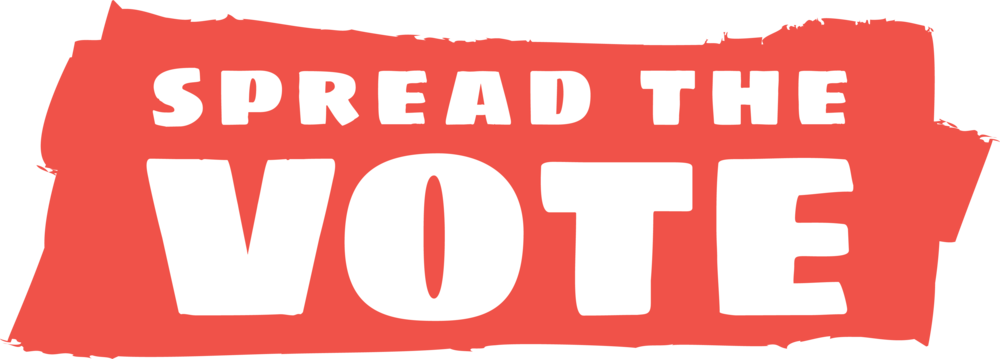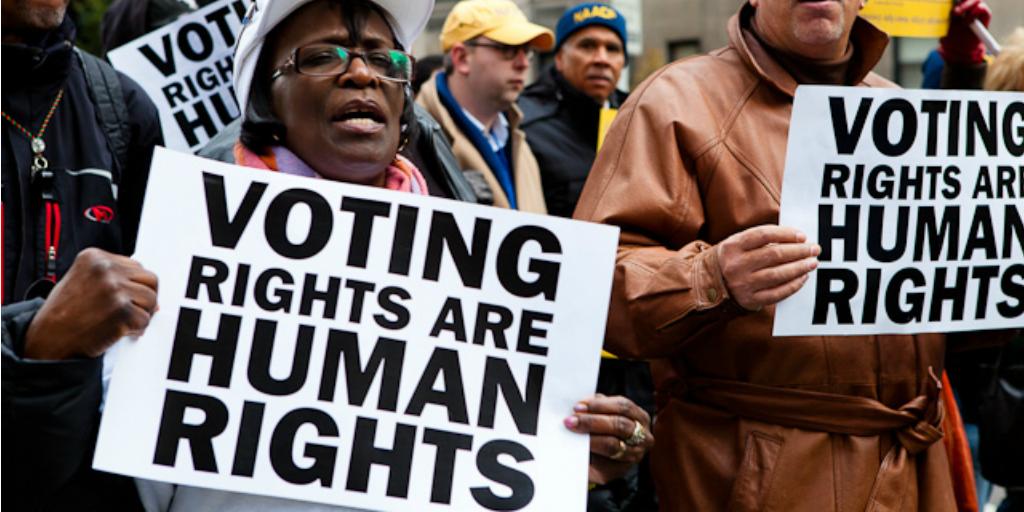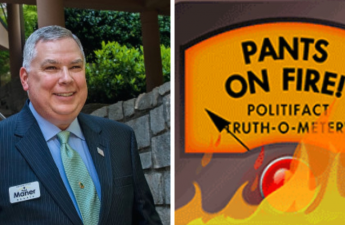Time-sensitive information
Spread the Vote, a non-partisan organization that helps people get photo IDs so they can vote, is the middle of a challenge fundraiser. The goal: $20,000 in donations by May 28 (next Tuesday) to qualify for a $20,000 matching grant from a generous donor. According to the group’s founder, this will enable Spread the Vote to provide for 1,000 photo IDs. Click here to donate. Click here to volunteer.
Photo IDs and voter suppression
As soon as Republicans gained control of the Georgia General Assembly in 2005, they passed a restrictive photo ID law for voting, because with great power comes great fear of losing said power. The concept was easy to sell to the public. Photo IDs prevent voter fraud, right? And if you have a driver’s license, you’re good to go. However, here’s the thing: In-person voter fraud is exceedingly rare, so photo ID laws cure a problem that doesn’t really exist. Which means repealing them would make just as much sense as keeping them.
For Republicans, photo ID laws have an added benefit, like that prescription drug that’s intended to cure a disease, but has an even more important off-label usage. The laws disproportionately affect poor, minority, and elderly voters. By disenfranchising likely Democratic voters, GOP candidates gain an advantage. It’s a prime means of voter suppression. A 2006 study by Georgia’s Secretary of State estimated that 650,000 registered voters didn’t have the photo ID they needed to vote. More current estimates place the number at 800,000, and more than 20,000,000 nationwide.
Since voter ID laws have been upheld by the courts, they’re with us for the foreseeable future, so the fix is to help people get IDs.
Spread the Vote helps rebuild lives
That’s where Spread the Vote comes in. It’s the brainchild of activist Kat Calvin, who founded the organization in the wake of the 2016 elections. It’s been growing ever since, with branches in several states, including Georgia. (Visit the website for the full list and links to states.) In a recent email to supporters, Calvin reported, “It took us over a year to get our first 1,000 IDs. It took 10 weeks to get our second 1,000 IDs. It took just 7.5 weeks to get our third 1,000!”
Re-enfranchising voters one at a time can be a heavy lift, because it involves navigating the vital records bureaucracy as well as the DMV. There are also costs of obtaining records and paying for IDs, hence an incremental cost of $40 per ID. And it’s important to note that having an ID isn’t just about voting. Calvin explained to Axios, “Our clients use their IDs to get jobs, housing, medical care, food at food banks, nights at shelters, and so much more.”
While Spread the Vote hasn’t gotten the media attention it deserves, it’s building an impressive network through social services organizations and social media. Kat Calvin’s great idea deserves to be a really big deal. Let’s help her make it happen.
Spread the Vote:,Twitter, Facebook
Georgia Chapter: Twitter, Facebook
Before meeting @spreadthevotetn, Calvalina never had a #Tennessee ID. She's 18 & in a job training program. We got Calvalina's birth certificate & ID the same day AND she registered to vote! Now she has everything she needs to get a job when she completes her program. #IDsForLife pic.twitter.com/p13V8G9Ns5
— Spread The Vote (@SpreadTheVoteUS) May 23, 2019
Liked this post? Follow this blog to get more.





